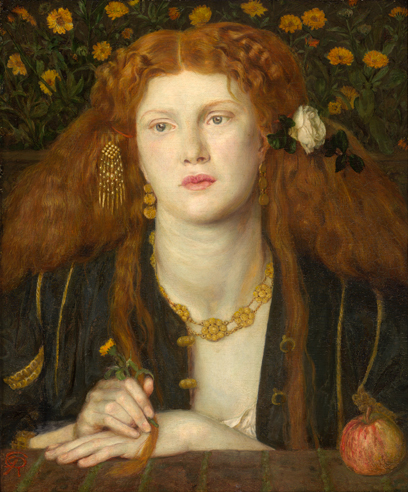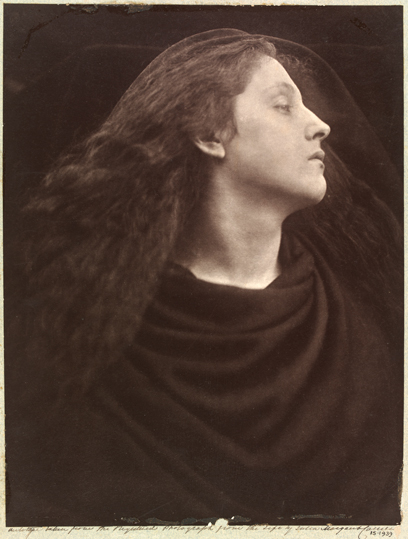Introduction
Just like every other area in life that has movements which advocates for the rights of people who have subscribed to the movement, the concept of art also has its own movement which is known as the aesthetic movement.
The core values that govern this movement have no strict definition with the movement encompassing the various art fields like metalwork, woodwork, fine art, literature and textiles.
The argument that was fronted by this movement was that art was not established or did not come into being for the purpose of being useful in the practical perception but instead was meant to be an independent or autonomous part of human life which ought to be allowed to exist independently as such.
The cult of beauty on the other hand is an exhibition that is one of its kind which hopes to showcase the various types of artistic nature in various parts of the world and also seeks to show that art is a part and parcel of the day-to-day life. This discussion takes an in-depth look at this exhibition while it is analyzing its form and content.
Key Characters of the Aesthetic Movement
According to pioneers of the aesthetic movement art needed not be didactic. This means that art need not serve any particular purpose but it only needs to be beautiful. There was a lot of emphasis as far as feminine beauty is concerned. The art from Japan is said to have greatly influenced the movement of aestheticism.
The cult of beauty was therefore a concept that was developed by aesthetes who saw beauty as the basic element in art. The key characteristics of the aesthetic movement include:
- Using symbols massively
- Making suggestions rather than making statements
- Sensuality
- Ensuring that there is rhyme between colour, words and music.
Looking at various pieces that have been made by various artists, they are inspired by various themes which include literature, influence from Japan, wood that has been ebonized, porcelain and earthenware. The aesthetic movement greatly influenced dress, decoration and what is considered as lifestyle today. Aslin (1981) indicates:
“Artists and writers of the Aesthetic movement period maintained the belief that art should provide refined sensuous pleasure, rather than convey moral or sentimental messages. They believed that art did not have any didactic purpose; it need only be beautiful.”
This exhibition also helps us appreciate the fact that art has come a long way back in the days when not so many people really understood what art was about until the present when exhibitions such as this can now be held.
The exhibition has actually been divided into four different phases to show how art has undergone metamorphosis over the years to get to where it is today.
This exhibition therefore gives a true historical perspective of the kind of growth that art has undergone. Art and its growth has influenced and been influenced by various aspects of life including politics.
This exhibition seeks to recognize those who have been instrumental in bring changes in the country through their political will to cause changes in the perception that people had previously about art (Wilson 1989).
Recognition must also be given to the fact that the Royal Academy back in the 1800s contributed largely to the growth of art by encouraging people to express their ideas through art. Culturally, this exhibition helps people appreciate the various cultures that the world embraces and the uniqueness of each culture.
It is without a doubt that each culture has something to showcase and this can best be done through art. It is also a learning experience for many people who get to experience fast hand the culture of other people.
The culture of beauty began regaining recognition in the mid 1800s with pioneers such as Gabriel Rosetti, James McNeil and Edward Burne exploring all ideas and concepts that surrounded the beauty of a woman.
Later, the idea of beauty was to be extended beyond that of a woman and this saw the culture of beauty grow into interior design and architecture. This saw a collaborations between experts in these two fields.
Whistler who was an architect and Godwin who was designer collaborate in the design of the present day White House as well as furniture which was used back in the days and today as well (Thackara 1988).
It is after this that those who were good in painting and combing painting and decoration of houses brought out a perfect outcome which attracted a large number of people including those who were initially opposed to the idea (Zukowski 2006).
These people were on great demand at the time as the wealthy who wanted to have their houses decorates always engaged their services at a hefty cost. Companies in the manufacture of furniture at the time realized that they could make a kill by hiring this people and by then art had already gained wide recognition.
It is during the final reign of Queen Victoria that the aesthetic movement gained yet another feather on its cap. This is when drawings were also included to become part of the great works of arts. While great progress has been made since the aesthetic movement was first established, it must recognized that the growth of this movement was not without its fair share of challenges.
The various periods that exhibition is divided onto based on chronology is a clear indication that it has not always been a smooth ride for this movement that is now recognized as one of the greatest movements of the time.
Images to be displayed
Every year the culture of beauty showcases various images and this year is no different. One of the images is ‘Bocca Baciata’ Dante Gabriel Rossetti which is one of the greatest works of art ever done by Dante Gabriel Rosette. Rosetti was one of the pioneers of art and brought a whole new meaning to painting which was not only provocative but sensuous as well.
This great piece of art was done back in 1859 in London. It will be a perfect way to compare where art came from and how it has advanced over the years. (Laumbrone 1996; Parker and Pollock 1981).

‘Bocca Baciata’ Dante Gabriel Rossetti London 1859 Oil on panel Museum of Fine Arts, Boston
Call I follow, let me die is yet another image that will be showcased in cult of beauty. This image was done by Julia Margaret Cameron back in the year 1867 in London. It is a portrait that is unconventional which shows Mary Hiller who was a maid of a parlor in Cameron.
Mary Hiller is shown as heroine who attained her status tragically belonging to the legend of Arthurian. The title of this portrait is drawn from the poem of Tennyson, Idylls of the King.
With the display of this images people will have an opportunity to reflect the varying practices and principles that guides the schools that train in art. They will also be in a better position to make comparisons on the various changes that drawing has undergone from the 19th century to present day (Aslin 1981).

“Call, I follow, I follow, let me die!’ Julia Margaret Cameron London 1867
Conclusion
Art has come quite a long way. It may not appear so today, but the pioneers of what we are proud of as art fought great battles to bring art to where it is today. It was not easy but it was about convincing the rest of the world that it was something worth paying attention.
The organization of the cult of beauty is great indication of the great steps that art as an aspect has made to come this far. It is thus important for those who are able to attend this exhibition to do so this and each and every year.
There is always something new and unique and this gives people an opportunity to learn what they did not know and also give an insight to new ideas that people had not thought of. The aesthetic movement was a great idea and the cult of beauty was an even greater idea whose timing was perfect.
It would have not come at a better time. With the culture of beauty people are now able to gain an in-depth understanding where the various types of beauty that women adorn originated from. From ornaments, to their kind of dressing to how they wear their hair all can be traced back to the pioneers of the aesthetic movement. This exhibition also recognizes the great efforts of those who have brought art to where it is now.
References
Aslin, E. (1981) The aesthetic movement: prelude to Art Nouveau. California: Excalibur Books.
Laumbrone, L. (1996) The Aesthetic Movement. Michigan, Phaidon. Parker, R. and Pollock, G. (1981). Old Mistresses: Women, Art and Ideology. London: Routledge & Kegan Paul.
Thackara, J. (1988) Introduction Design After Modernism London: Thames and Hudson.
Wilson, E. (1989) Through The Looking Glass: A History of Dress from 1860- present. London: BBC Book.
Zukowski, K. (2006) Creating the artful home: the aesthetic movement. New York: Gibbs Smith.